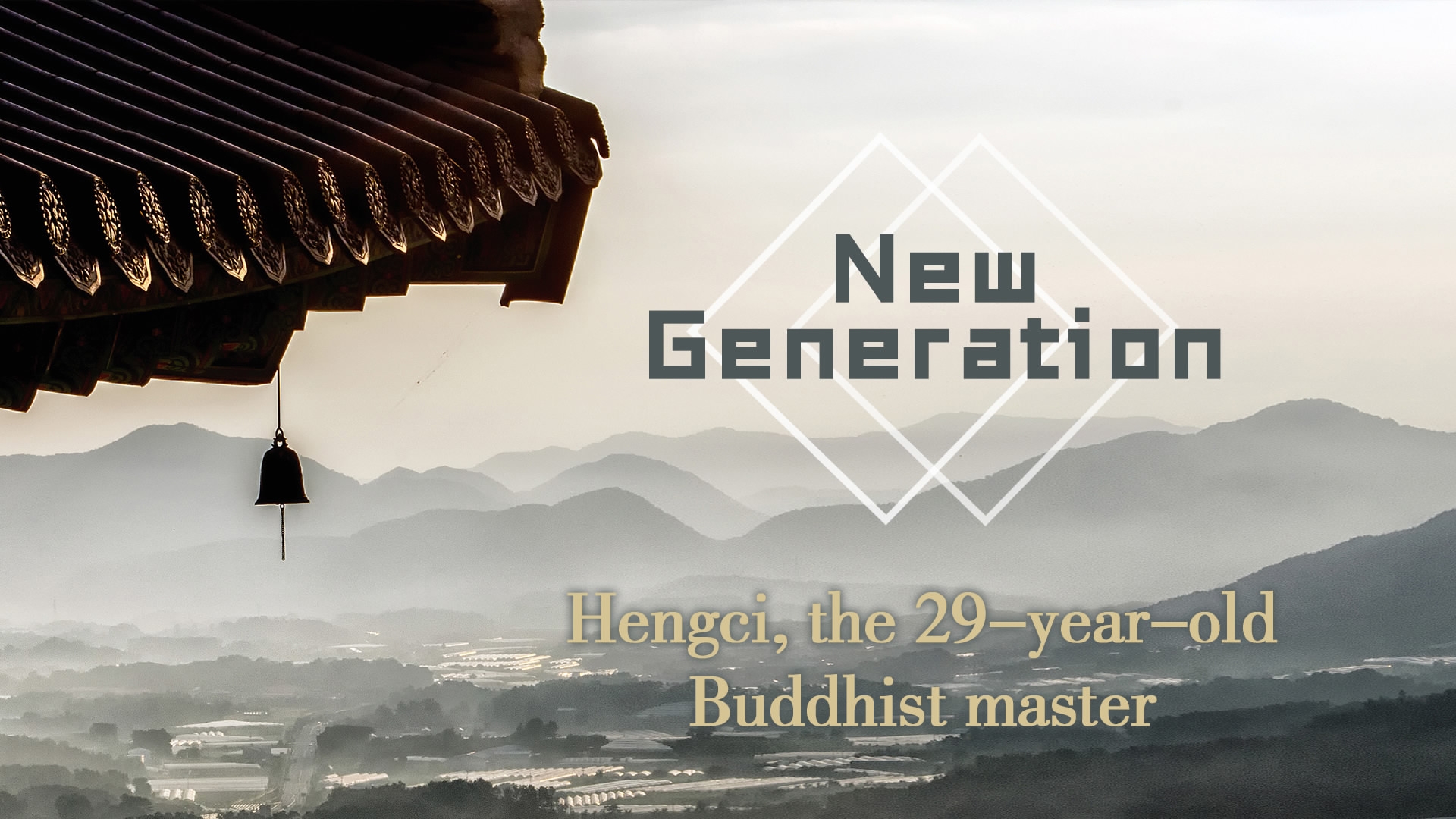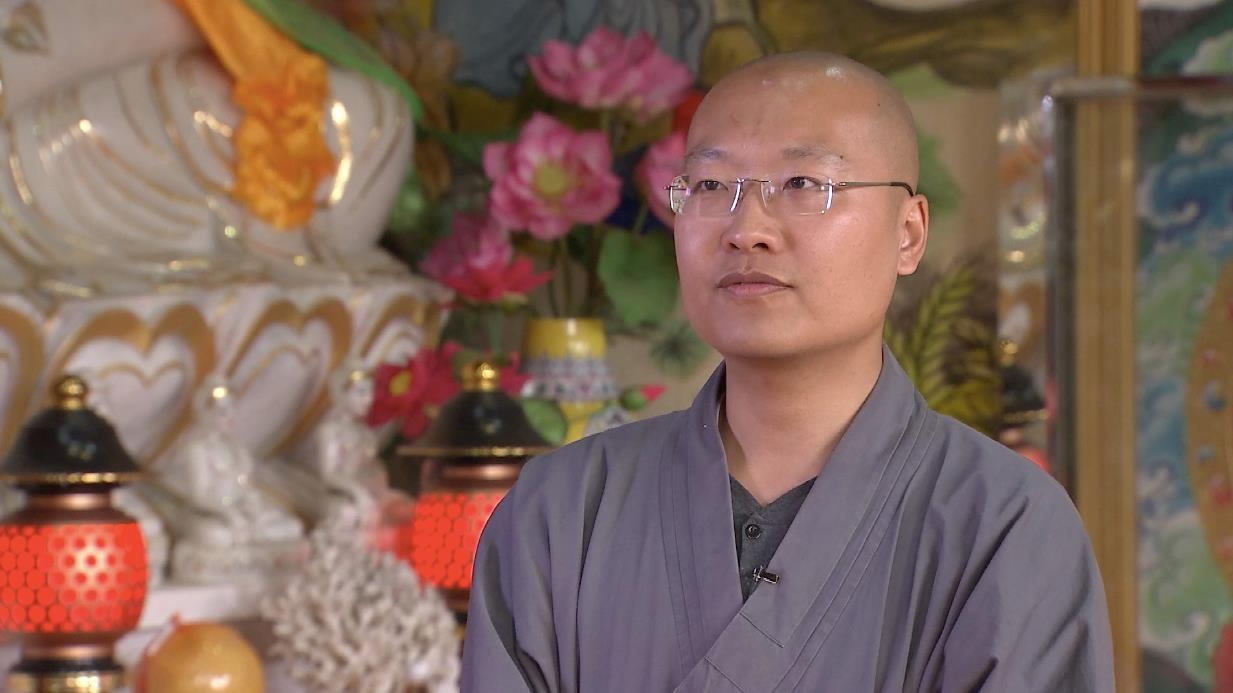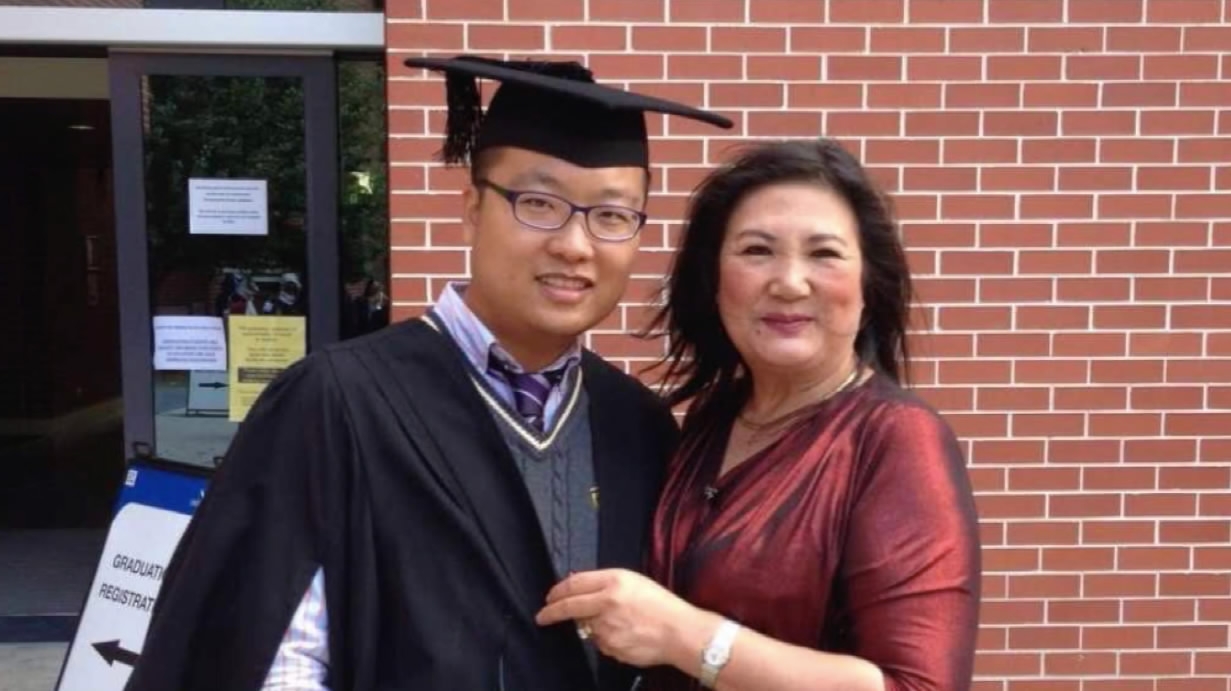
Culture
11:46, 27-Apr-2018
New Generation: Master Hengci, the 29-year-old Buddhist master
By Cui Hui'ao
03:21

At the Tiankai Temple, 70 kilometers outside of Beijing, 29-year old Master Hengci chants twice a day. He spent seven years abroad, before turning to Buddhism.
"I went to college in Sydney. I was doing volunteer work at an elderly care center and a center for adults with mental illnesses. Some of my clients passed away at very young ages which made me think that the world is full of uncertainty,” said Hengci.
That experience led him to visit the Nan Tien Temple, the largest Buddhist temple in the Southern Hemisphere. There he started to learn about Buddhism, and began to understand why some of his college friends were not so happy with their lives, even though they live a very luxurious lifestyle.

A photo of Master Huici. /CGTN Photo
A photo of Master Huici. /CGTN Photo
“A lot of people get lost in five kinds of desires: Wealth, fun, food, sleep, and sex. I used to be just like them. And Buddhism teaches me that all the phenomena are like a dream, an illusion, a bubble and a shadow. You should meditate on them in order to reach a peaceful mind," he said.
However, it was not easy getting others to understand his choice. As the only child of his family, Hengci said the most difficult part was convincing his parents.
“At first my parents and relatives thought It was a joke. My dad is not religious at all, and my mom objects to it too. But I made my own decision and they realized I'm serious about being a monk. Some relatives are more supportive than others. Like some would still say ‘Why not just live a normal life, get married and have a baby?’”
Buddhist culture has a long history in China. With the rapid changes in modern society, some young people are turning to Buddhism for comfort and peace.

Master Hengci used to study in Australia for undergraduate. /Photo provided by Hengci
Master Hengci used to study in Australia for undergraduate. /Photo provided by Hengci
Like Hengci, about one-fifth of the monks at the Tiankai temple in Beijing are in their late twenties. This is their daily routine: Starting the day at 5:00 a.m., they meditate and chant for two hours. Then it’s the usual gardening activities of planting trees and watering flowers. What’s also changed is their diet – no more meat or seafood, but only vegetables.
Hengci said what Buddhism has taught him is to live selflessly, always searching for the bigger picture.
“People always care about those around them. But Buddhists bear compassion for all beings, living or dead, human or animal, their suffering and happiness.”

Hengci's daily diet /Photo provided by Hengci
Hengci's daily diet /Photo provided by Hengci
Master Hengci told CGTN that his choice of Buddhism is not to escape from the mundane, but rather to take responsibility and serve society in a different way.
Whatever it is... as a young adult, he is going forward with his heart and walking his own path.

SITEMAP
Copyright © 2018 CGTN. Beijing ICP prepared NO.16065310-3
Copyright © 2018 CGTN. Beijing ICP prepared NO.16065310-3